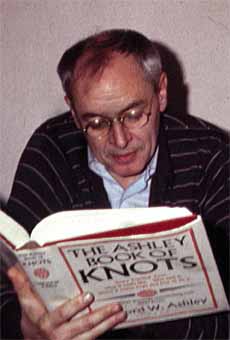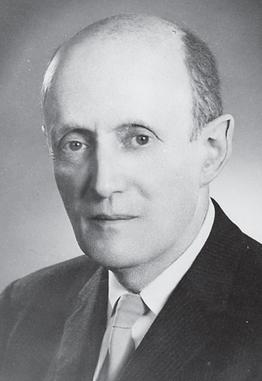Related Research Articles
Sanity refers to the soundness, rationality, and health of the human mind, as opposed to insanity. A person is sane if they are rational. In modern society, the term has become exclusively synonymous with compos mentis, in contrast with non compos mentis, or insanity, meaning troubled conscience. A sane mind is nowadays considered healthy both from its analytical - once called rational - and emotional aspects. According to the writer G. K. Chesterton, sanity involves wholeness, whereas insanity implies narrowness and brokenness.

Anti-psychiatry is a movement based on the view that psychiatric treatment is often more damaging than helpful to patients, highlighting controversies about psychiatry. Objections include the reliability of psychiatric diagnosis, the questionable effectiveness and harm associated with psychiatric medications, the failure of psychiatry to demonstrate any disease treatment mechanism for psychiatric medication effects, and legal concerns about equal human rights and civil freedom being nullified by the presence of diagnosis. Historically critiques of psychiatry came to light after focus on the extreme harms associated with electroconvulsive treatment or insulin shock therapy. The term "anti-psychiatry" is in dispute and often used to dismiss all critics of psychiatry, many of who agree that a specialized role of helper for people in emotional distress may at times be appropriate, and allow for individual choice around treatment decisions.

Erich Seligmann Fromm was a German social psychologist, psychoanalyst, sociologist, humanistic philosopher, and democratic socialist. He was a German Jew who fled the Nazi regime and settled in the US. He was one of the founders of The William Alanson White Institute of Psychiatry, Psychoanalysis and Psychology in New York City and was associated with the Frankfurt School of critical theory.

Ronald David Laing, usually cited as R. D. Laing, was a Scottish psychiatrist who wrote extensively on mental illness – in particular, the experience of psychosis. Laing's views on the causes and treatment of psychopathological phenomena were influenced by his study of existential philosophy and ran counter to the chemical and electroshock methods that had become psychiatric orthodoxy. Taking the expressed feelings of the individual patient or client as valid descriptions of personal experience rather than simply as symptoms of mental illness, Laing regarded schizophrenia as a theory not a fact. Though associated in the public mind with the anti-psychiatry movement, he rejected the label. Politically, he was regarded as a thinker of the New Left. Laing was portrayed by David Tennant in the 2017 film Mad to Be Normal.

Humanistic psychology is a psychological perspective that arose in the mid-20th century in answer to two theories: Sigmund Freud's psychoanalytic theory and B. F. Skinner's behaviorism. Thus, Abraham Maslow established the need for a "third force" in psychology. The school of thought of humanistic psychology gained traction due to key figure Abraham Maslow in the 1950s during the time of the humanistic movement. It was made popular in the 1950s by the process of realizing and expressing one's own capabilities and creativity.
Neo-Freudianism is a psychoanalytic approach derived from the influence of Sigmund Freud but extending his theories towards typically social or cultural aspects of psychoanalysis over the biological.
Herbert "Harry" Stack Sullivan was an American Neo-Freudian psychiatrist and psychoanalyst who held that "personality can never be isolated from the complex interpersonal relationships in which [a] person lives" and that "[t]he field of psychiatry is the field of interpersonal relations under any and all circumstances in which [such] relations exist". Having studied therapists Sigmund Freud, Adolf Meyer, and William Alanson White, he devoted years of clinical and research work to helping people with psychotic illness.

Freudo-Marxism is a loose designation for philosophical perspectives informed by both the Marxist philosophy of Karl Marx and the psychoanalytic theory of Sigmund Freud. It has a rich history within continental philosophy, beginning in the 1920s and 1930s and running since through critical theory, Lacanian psychoanalysis, and post-structuralism.
The trauma model of mental disorders, or trauma model of psychopathology, emphasises the effects of physical, sexual and psychological trauma as key causal factors in the development of psychiatric disorders, including depression and anxiety as well as psychosis, whether the trauma is experienced in childhood or adulthood. It conceptualises people as having understandable reactions to traumatic events rather than suffering from mental illness.

Buddhism includes an analysis of human psychology, emotion, cognition, behavior and motivation along with therapeutic practices. Buddhist psychology is embedded within the greater Buddhist ethical and philosophical system, and its psychological terminology is colored by ethical overtones. Buddhist psychology has two therapeutic goals: the healthy and virtuous life of a householder and the ultimate goal of nirvana, the total cessation of dissatisfaction and suffering (dukkha).
Eastern philosophy in clinical psychology refers to the influence of Eastern philosophies on the practice of clinical psychology based on the idea that East and West are false dichotomies. Travel and trade along the Silk Road brought ancient texts and mind practices deep into the West. Vedic psychology dates back 5000 years and forms the core of mental health counselling in the Ayurvedic medical tradition. The knowledge that enlightened Siddhartha Gautama was the self-management of mental suffering through mindfulness awareness practices. Humane interpersonal care of the mentally disturbed was practiced in the Middle East in the Middle Ages, and later in the West. Many of the founders of clinical psychology were influenced by these ancient texts as translations began to reach Europe during the 19th century.
Daniel N. Stern was a prominent American developmental psychologist and psychoanalyst, specializing in infant development, on which he had written a number of books — most notably The Interpersonal World of the Infant (1985).

Karl Stern was a German-Canadian neurologist and psychiatrist, and a Jewish convert to the Catholic Church. Stern is best known for the account of his conversion in Pillar of Fire (1951).
Elias Hull Porter was an American psychologist. While at the University of Chicago Porter was a peer of other notable American psychologists, including Carl Rogers, Thomas Gordon, Abraham Maslow and Will Schutz. His work at Ohio State University and later at the University of Chicago contributed to Rogers’ development of client-centered therapy. Porter's primary contributions to the field of psychology were in the areas of non-directive approaches, relationship awareness theory and psychometric tests. His career included military, government, business and clinical settings.

The Politics of Experience and The Bird of Paradise is a 1967 book by the Scottish psychiatrist R. D. Laing. The book comprises two parts - the first a collection of seven articles previously published between 1962 and 1965; the second a free-flowing quasi-autobiographical piece of poetry and prose.
Neo-Adlerian psychologists are those working in the tradition of, or influenced by Alfred Adler, an early associate of, and dissident from the ideas of, Sigmund Freud.

Doctoring the Mind: Why psychiatric treatments fail is a 2009 book by Richard Bentall, his thesis is critical of contemporary Western psychiatry. Bentall, a professor of clinical psychology, argues that recent scientific research shows that the medical approach to mental illness is fatally flawed. According to Bentall, it seems there is no "evidence that psychiatry has made a positive impact on human welfare" and "patients are doing no better today than they did a hundred years ago".
The American Mental Health Foundation (AMHF) is a not-for-profit organization dedicated to the welfare of individuals with emotional problems and advancing mental-health research. AMHF is established to organize educational seminars and to disseminate its knowledge.
Self and Others is a psychological study by R. D. Laing, first published in 1961. It was re-issued in a second edition (1969), which was “extensively revised, without being changed in any fundamental way”.

Andrew Feldmár is a Hungarian born psychotherapist living in Canada. He is most known as the Hungarian follower of R. D. Laing, the Scottish psychiatrist who was one of the leading figures of the counterculture of the 1960s. Laing, who later became his friend, was his teacher and therapist first. Following his mentor, Feldmár practices and popularizes a form of radical psychotherapy, where the main goal of the therapist is to engage in a real, spontaneous and honest relationship with the patient. This approach is based on the findings of research on interpersonal phenomenology, spiritual emergency, the anthropology of healing, existential psychotherapy and community therapy. Feldmár rejects the labelling of human suffering, and therefore distances himself from the mainstream forms of psychiatry and psychotherapy which are based on the concept of mental illness. He has published many books in Hungarian, he lectures, teaches, provides supervision and therapy internationally, he has worked as a psychotherapist with over 52 years of experience, having spent more than 100,000 hours in psychotherapy with clients. He has been noticeably successful treating psychotic patients. He is a well-known expert in psychedelic-assisted psychotherapy.
References
- 1 2 "Daniel Burston | Duquesne University". Duquesne University. 14 September 2022. Retrieved 14 September 2022.
{{cite web}}: CS1 maint: url-status (link) - ↑ "The legacy of Erich Fromm. - PsycNET". PsycNET - American Psychological Association. 14 September 2022. Retrieved 14 September 2022.
{{cite web}}: CS1 maint: url-status (link) - ↑ "PEP | Read - The Legacy of Erich Fromm. by Daniel Burston.: Cambridge, MA: Harvard University Press, 1991, xi + 260 pp., $29.95". Psychoanalytic Electronic Publishing. 14 September 2022. Retrieved 14 September 2022.
{{cite web}}: CS1 maint: url-status (link) - ↑ Waring, Duff (1997). "Review of The Wing of Madness: The Life and Work of R.D. Laing". The Journal of Mind and Behavior. 18 (4): 465–472. ISSN 0271-0137. JSTOR 43853836.
- ↑ "The Wing of Madness: The Life and Work of R.D. Laing by Daniel Burston". www.publishersweekly.com. 14 September 2022. Retrieved 14 September 2022.
{{cite web}}: CS1 maint: url-status (link) - ↑ Pols, Hans (September 6, 2002). "The Crucible of Experience: R. D. Laing and the Crisis of Psychotherapy (review)". Journal of the History of Medicine and Allied Sciences. 57 (4): 510–512. doi:10.1093/jhmas/57.4.510 – via Project MUSE.
- ↑ Russell, Roberta (September 6, 2001). "Review: The Crucible of Experience: R.D. Laing and The Crisis of Psychotherapy". 3 (2): 268–269. doi:10.7916/D8W66KN0 – via academiccommons.columbia.edu.
{{cite journal}}: Cite journal requires|journal=(help) - ↑ Kelly, Kevin (September 3, 2018). "A forgotten Freudian: The passion of Karl Stern by Daniel Burston". The International Journal of Psychoanalysis. 99 (5): 1240–1245. doi:10.1080/00207578.2018.1488444. S2CID 149458806 – via Taylor and Francis+NEJM.
- ↑ Mayer, Charles D. (June 1, 2018). "A Forgotten Freudian: The Passion of Karl Stern". Journal of Religion and Health. 57 (3): 1196–1197. doi:10.1007/s10943-018-0607-1. S2CID 4430523 – via Springer Link.